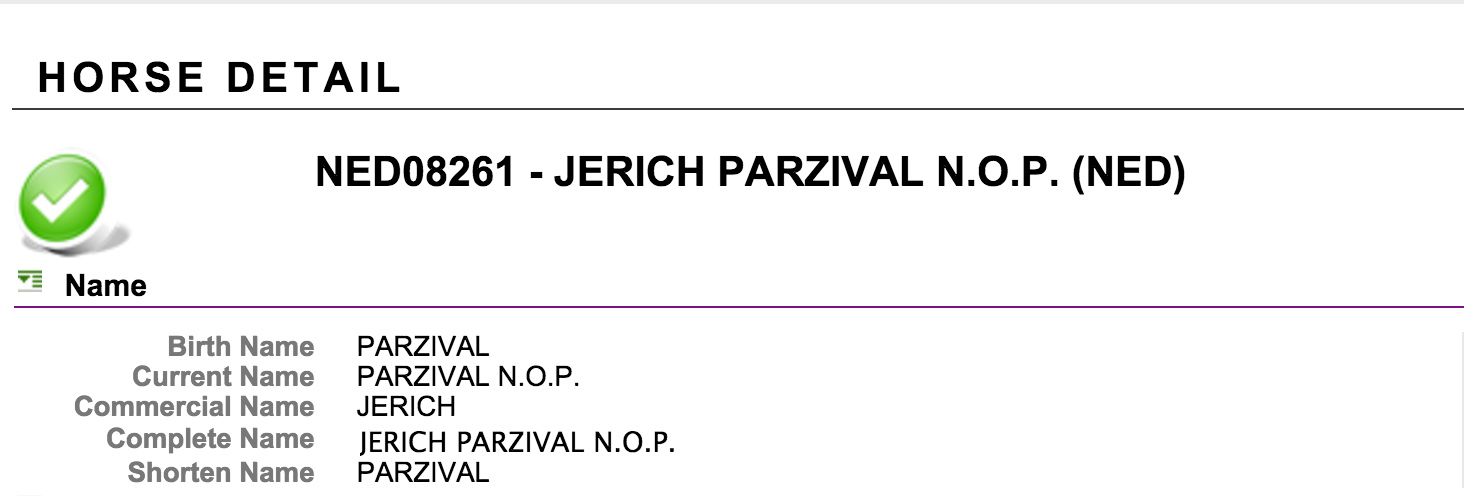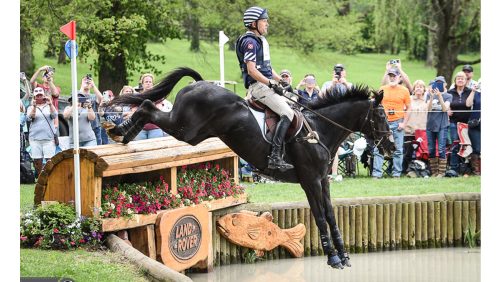On Jan. 1, the Fédération Equestre Internationale implemented a new fee and guidelines for horses applying for a passport, and now it’s catching many owners and riders registering their horses by surprise.
Previously changing a horse’s name on an existing passport incurred a $1,000 fee, but now the new guidelines also state that any horse registering for its first FEI passport must revert back to its birth name or pay 1,000 Swiss francs, about $1,000, to change the name or add a commercial prefix.
When asked why the fee was implemented, a spokesperson for the FEI said, “This ensures transparency and clarity—the same process for everyone in the international equestrian community. The FEI has consulted with its National Federations on this, as it does with all rule changes. This system is designed to benefit everyone, from breeders with respect to the birth name, to sponsors who see the value of naming horses.”
The FEI defines a birth name as the name on the document issued at birth by a studbook or the name on the first official document issued, such as a national passport.
If the name of a horse at birth is not available or it is not affiliated with a studbook, the FEI will accept the name written in the first document issued. They will allow the name of a farm in a horse’s name if the horse was bred there.
In addition, the FEI will allow non-commercial initials, such as a non-profit organization or state organization, and name shortening for a 200 Swiss francs fee.
A commercial name is defined as a company or brand, a stable name, a group of people or an association, a person, or a breed association’s initials, so names with a dealer prefix like Fernhill, a breed name like FRH, or a sponsor like H&M are subject to the fee.
ADVERTISEMENT
The new guidelines complicate registration for riders and owners who may have competed a horse under a given name for several years at shows affiliated by their national federations but have decided to show in FEI competitions.
The FEI confirmed that the fee also applies to off-the-track Thoroughbreds, who must revert back to their Jockey Club names unless a birth document exists with a prior name. Of course, an owner also has the option to pay the approximately $1,000 change fee.
Leah Oliveto, director of communications for the U.S. Equestrian Federation, said that any time a recorded horse’s name is changed with USEF, the owner must pay a $60 fee, so for owners who are applying for a new FEI passport and want to revert back to their horse’s original name to avoid the $1,000 FEI fee, the USEF fee still applies.
“The FEI passport name change guidelines are not part of the FEI rules, therefore the guidelines did not go through the formal rule change process,” said USEF Director of Sport Will Connell. “The guidelines have been evolving for a number of years now, and the only update for 2016 was the requirement that owners obtaining an FEI passport and wishing to use a name other than the one that appears in the first recorded document for the horse pay a $1,000 fee to change the name and/or add a commercial prefix.
“The USEF intends to discuss the implications of the guidelines with representatives from the FEI during the FEI Sports Forum [in April], including the concerns that have been expressed by USEF members,” he added.
The USEF has two passport representatives on staff. For further questions, Oliveto recommended contacting Shawn Finlinson at sfinlinson@usef.org or Megan McIntee at mmcintee@usef.org.
The FEI did not responded to questions of how the new guidelines will be enforced or whether the organization thinks the fee will discourage people from submitting original papers and breeding information and choosing any name. There is a “birth name” box on the FEI database for every horse.
ADVERTISEMENT
Canadian dressage rider Evi Strasser was surprised when she heard about the fee. Strasser has run her Good Tyme Stables in Quebec since 1994 and has branded horses that she’s bred or those she’s imported with “Tyme” in their names.
She said she understood when horses she sold were re-named by their new owners, just as she does when she imports them, but she doesn’t believe the fee is a good idea. Even so, she said she would pay it to keep her brand.
“I think it’s a money-making thing from my point of view,” she said. “Can you imagine how many stud farms and how many people who are buying horses and don’t want the brand from another barn? These horses are a lot of money. If it was $100, I would understand.
“The amount of horses we are showing, every year, we have a couple of FEI horses coming out, it would get outrageous—$4,000, $5,000, $6,000 a year only getting FEI passports,” she continued. “There are many other people in the same boat, but this farm has existed for a such a long time, and now we should change that because of a new ruling? I’m not for it.”
Whether it was designed to or not, Diane Harron Eakin of Ringfort Stud in Ireland said that the new guidelines might help breeders. Eakin names her homebreds with the “Ringfort” prefix, in existence for 25 years, and has seen smaller Irish breeders affected by dealers adding prefixes.
“Herein lies the crux of [breeders’] concerns: Dealer buys a horse, changes the name and adds their own prefix,” she said. “The breeder’s prefix is dropped, the horse performs well, and another potential buyer wanting one just like it goes to the dealer rather than to the breeder to buy. The birth prefix, which is the breeder’s shop window, is gone, and the breeder loses out. It does remain in the passport, but a potential buyer usually doesn’t get to see the passport until later in the transaction, and by then the dealer has their full attention.”
Eakin questioned the FEI’s motive to add the fee, wondering if was meant as a disincentive to dealers.
“The dealers should not be whining about this charge—for the paltry sum of 1,000 [Swiss francs] they help diminish the future livelihood of a small breeder who has worked hard and accepted the cost and acknowledged risk of getting a foal on the ground,” she said.















